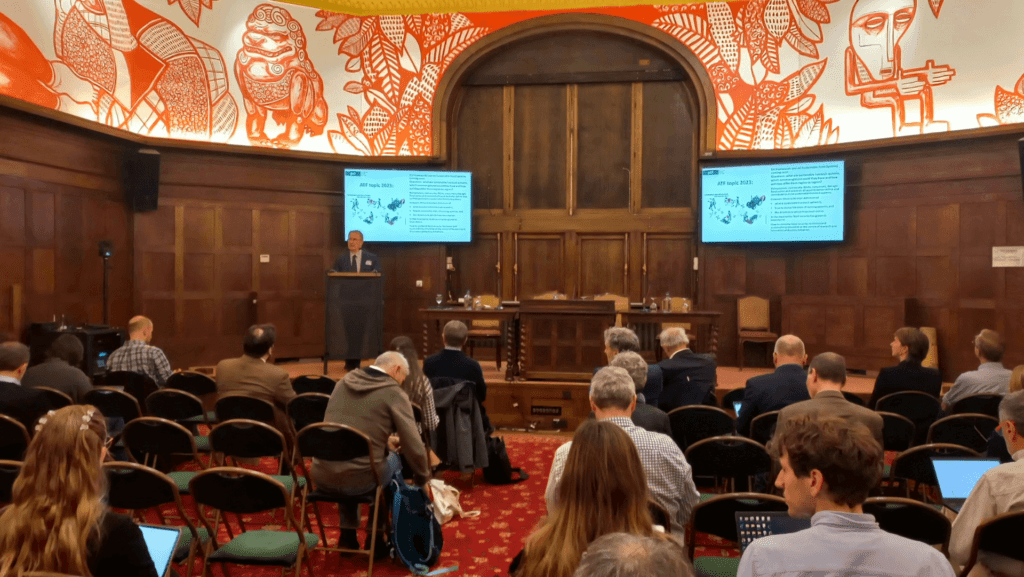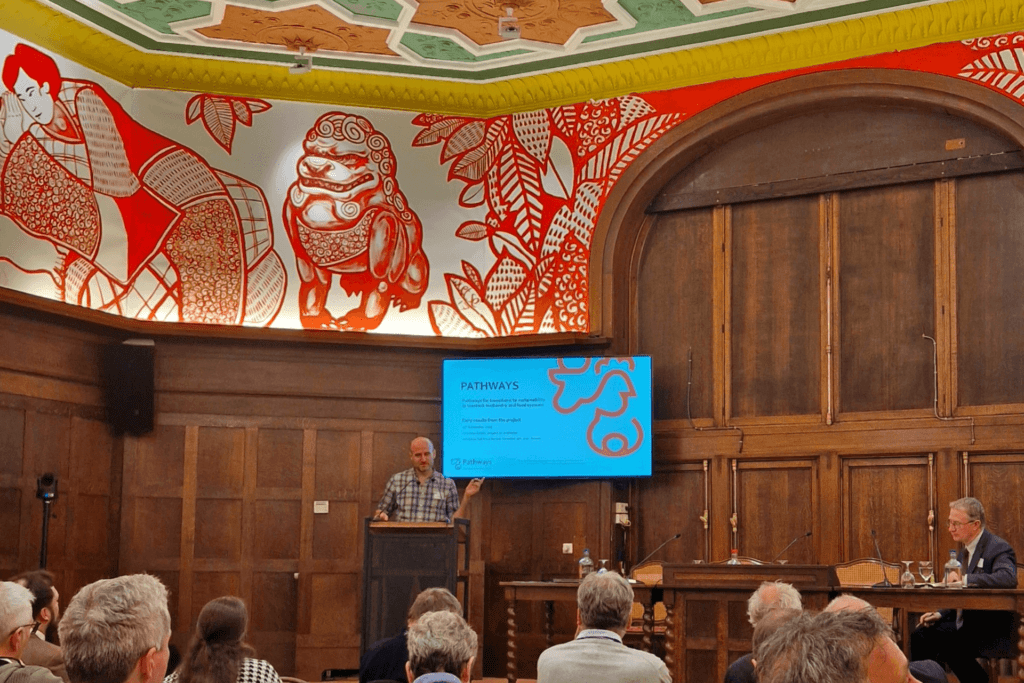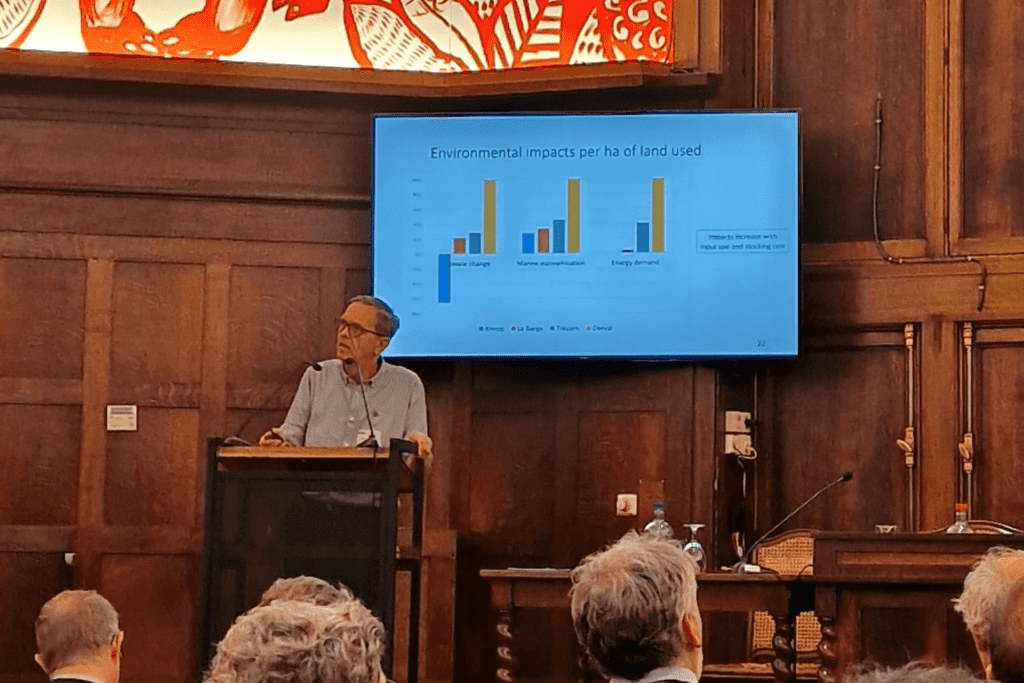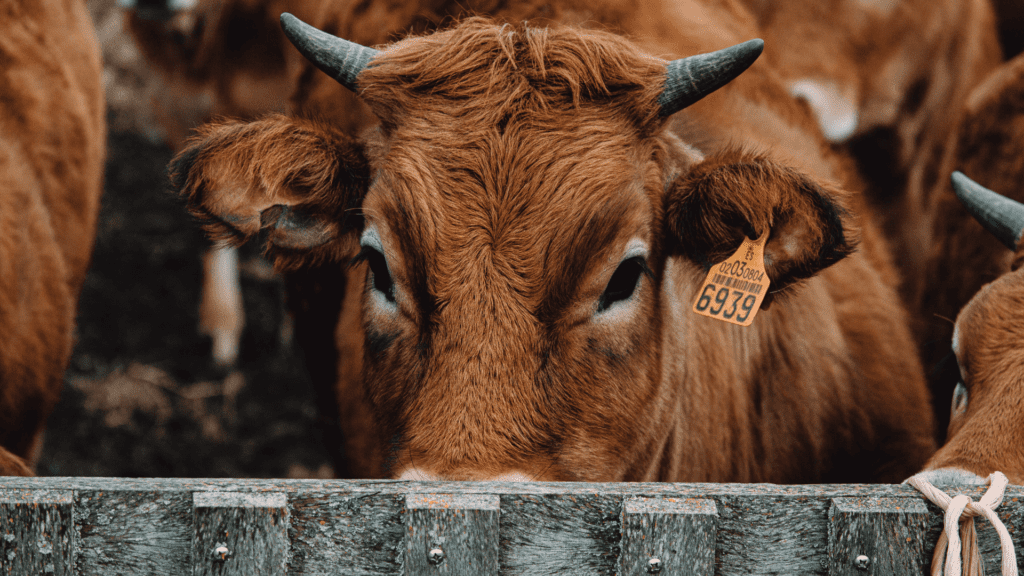Author: Carolanne O’Brien, Communication Trainee at REVOLVE.
On Wednesday, 15 November 2023, the 13th Animal Task Force Seminar, Sustainable Livestock Systems: “What does this mean?”, took place in Brussels, and closely aligned with the core objectives of PATHWAYS.
The day was led by Director of Teagasc, Frank O’Mara, who facilitated dynamic discussions on the key attributes of sustainable livestock systems, the methodologies for assessment of livestock sustainability and how livestock systems can further evolve to become more sustainable.

Here are the highlights:
- Jean-Louis Peyraud, INRAE, reflected on the previous one-day symposium of the ATF and the EAAP Commission on Livestock Farming Systems held on 28 August 2023, which emphasised the complexity of livestock systems and the challenges in assessing them.
“There is no one size fits all solution, we must find localised methods to achieve efficiency, circularity and sustainability across diverse livestock systems”
Jean-Louis Peyraud, INRAE
- Claire Bury, Deputy Director-General responsible for Food sustainability, DG Santé, emphasised that despite political changes, the objectives of the Green Deal persist, with a renewed focus on food security resulting from Russia’s invasion of Ukraine, and heightened challenges imposed by the COVID-19 pandemic and climate change. Consequently, food systems must become more sustainable in order to strengthen the resilience of the agri-food chain.
“Doing nothing is not an option, we must move forward to a resilient just transition”
Claire Bury, Deputy Director-General responsible for Food sustainability, DG Santé


- To overcome the limitations associated with relying solely on lifecycle assessments to gauge livestock sustainability, it is recommended to integrate ecosystem service assessments into the evaluation process.
- Removing livestock from our food system could significantly impact self-sufficiency, highlighting the circularity and benefits of livestock in a sustainable food system.
- Projects such as PATHWAYS and the upcoming STEP-UP project are imperative to characterise and assess livestock systems for sustainability. Development of holistic sustainability assessment methodologies through these projects is key to enable more sustainable livestock systems.
- Diverse approaches in Dutch dairy and Swiss/Polish pig production emphasized the absence of the one-size fits all solution to sustainable agriculture and the importance of context-specific innovations.
- Katharina Schobersberger, CEJA, gave a fantastic speech on the many obstacles faced by young farmers such as access to land, financing, and the cost of industry transition. However, generational renewal is crucial for achieving a sustainable farming industry.
“Only 6.5% of farmers are under the age of 35. Young farmers need to actively decide what the future holds and how we create that future. We need young farmers to contribute to the EU Farm to Fork Strategy and the EU Green Deal.”
Katharina Schobersberger, CEJA


Overall, the 13th Animal Task Force Seminar, Sustainable Livestock Systems: “What does this mean?” emphasised the complexity of sustainability in livestock systems, the ongoing policy efforts, diverse measurement approaches, the importance of on-farm innovations and the need for context-specific solutions to achieve a sustainable European livestock sector. It was a fascinating and vibrant forum on the future of farming across the EU!

